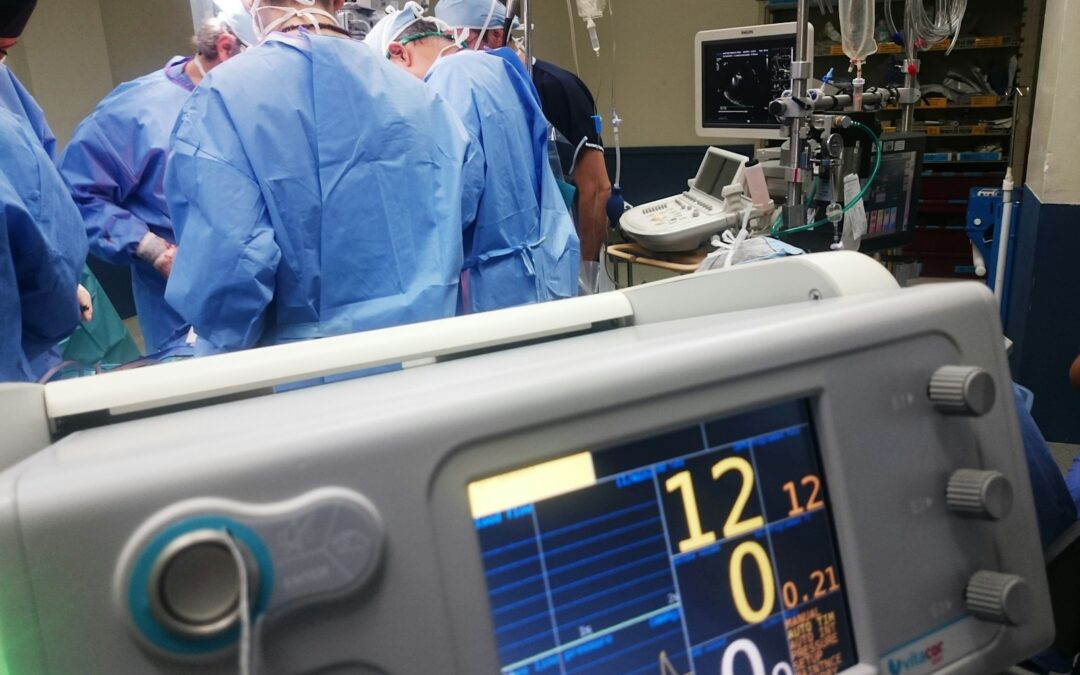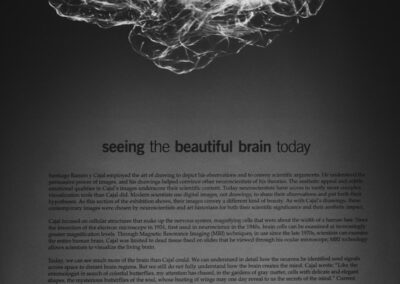How Artificial Intelligence Enhances Mental Health Diagnosis Through Data Analysis
Transforming Mental Health Diagnosis with AI
AI in diagnosing mental health conditions represents a groundbreaking approach in the field of mental health. By analyzing behavioral and physiological data, artificial intelligence is enhancing the accuracy and efficiency of mental health diagnoses. This innovative application of AI is becoming increasingly relevant in advanced markets like Saudi Arabia and the UAE, where the integration of modern technology can significantly impact healthcare outcomes.
Artificial intelligence leverages complex algorithms and machine learning to interpret vast amounts of data collected from various sources, including wearable devices, social media, and health records. These technologies can identify subtle patterns and correlations in behavior and physiological responses that might be missed by traditional diagnostic methods. For example, AI systems can analyze changes in speech patterns, social interactions, and biometric data to detect early signs of mental health issues such as depression or anxiety.
In regions like Riyadh and Dubai, where there is a strong focus on advancing healthcare technologies, AI-driven tools are being implemented to support mental health professionals. These tools not only provide more accurate diagnoses but also enable timely interventions, improving overall patient care and outcomes. By incorporating AI into diagnostic processes, healthcare providers can offer more personalized and effective treatment plans tailored to individual needs.
Behavioral and Physiological Data Analysis: The Core of AI-Driven Diagnostics
AI’s role in diagnosing mental health conditions hinges on its ability to analyze both behavioral and physiological data. Behavioral data includes information about a patient’s actions, interactions, and patterns of thought, often gathered from digital interactions or psychological assessments. Physiological data, on the other hand, involves metrics such as heart rate, sleep patterns, and activity levels collected through wearable technology.
Advanced AI algorithms process this data to detect patterns that indicate mental health conditions. For instance, changes in sleep patterns and physical activity levels, when analyzed by AI, can signal the onset of mood disorders or stress-related conditions. Similarly, behavioral data from social media activity or communication patterns can reveal insights into an individual’s mental state, helping to identify conditions like depression or bipolar disorder.
In Saudi Arabia and the UAE, where there is an increasing emphasis on integrating AI with healthcare, these data-driven insights are crucial. AI systems can continuously monitor and analyze data, providing mental health professionals with real-time information that supports more accurate and timely diagnoses. This capability not only enhances the precision of mental health assessments but also facilitates proactive management and intervention strategies.
Case Studies: Successful AI Integration in Mental Health Diagnosis
Several initiatives in Saudi Arabia and the UAE illustrate the successful integration of AI in diagnosing mental health conditions. In Saudi Arabia, a leading healthcare provider has implemented an AI-driven platform to analyze patient data and support mental health diagnosis. This platform uses machine learning algorithms to process behavioral and physiological data, resulting in more accurate assessments and personalized treatment plans.
In the UAE, a prominent research institution has developed an AI-based system to monitor mental health through wearable devices. This system tracks physiological data such as heart rate variability and sleep patterns, providing valuable insights into an individual’s mental well-being. The AI-driven analysis helps clinicians detect early signs of mental health issues and adjust treatment plans accordingly, leading to better patient outcomes.
These case studies highlight the transformative potential of AI in mental health diagnosis. By leveraging AI technologies to analyze complex data, healthcare providers in Saudi Arabia and the UAE are improving diagnostic accuracy and patient care. These successful implementations serve as models for how AI can be utilized to enhance mental health services and address the growing demand for innovative healthcare solutions.
Future Prospects and Considerations for AI in Mental Health Diagnosis
Advancements in AI Technology and Their Impact on Mental Health Care
The future of AI in diagnosing mental health conditions is promising, with ongoing advancements in technology expected to further enhance diagnostic capabilities. Emerging technologies such as advanced neural networks and natural language processing are likely to improve AI’s ability to interpret complex data and provide more accurate diagnoses.
Future AI systems will be capable of integrating even more diverse data sources, such as genetic information and environmental factors, to offer a comprehensive view of an individual’s mental health. This holistic approach will enable more precise identification of mental health conditions and facilitate personalized treatment strategies tailored to each patient’s unique profile.
In regions like Riyadh and Dubai, where there is a strong emphasis on technological innovation, these advancements will play a crucial role in shaping the future of mental health care. By staying at the forefront of AI technology, healthcare providers can continue to offer cutting-edge diagnostic solutions and improve the overall quality of mental health services.
Ethical and Practical Considerations in AI-Driven Mental Health Diagnosis
While the benefits of AI in diagnosing mental health conditions are substantial, it is essential to address ethical and practical considerations. Ensuring the privacy and security of patient data is paramount, as AI systems process sensitive information that must be protected against unauthorized access and misuse.
Moreover, AI algorithms must be designed to avoid biases that could affect diagnostic accuracy. Ensuring that AI systems are fair and unbiased is crucial to providing equitable mental health care and avoiding disparities in diagnosis and treatment.
Training and education for mental health professionals are also important. Ensuring that clinicians are equipped with the knowledge and skills to effectively use AI tools will maximize the benefits of these technologies and support better patient outcomes.
Conclusion: Embracing AI for Enhanced Mental Health Diagnosis
The integration of AI in diagnosing mental health conditions offers significant advancements in behavioral and physiological data analysis. By leveraging AI technologies, healthcare providers in Saudi Arabia and the UAE can achieve greater accuracy in diagnosing mental health issues and provide more effective treatment plans.
As AI technology continues to evolve, its role in mental health diagnosis will become increasingly vital. By addressing ethical considerations and investing in professional training, healthcare providers can fully harness the potential of AI to improve mental health care and enhance patient outcomes.
In conclusion, AI represents a powerful tool for revolutionizing mental health diagnosis. Embracing these technologies will enable healthcare professionals to offer more precise and personalized care, ultimately leading to better mental health outcomes and advancing the field of mental health services.
—
#AIinDiagnosingMentalHealthConditions #BehavioralDataAnalysis #PhysiologicalDataAnalysis #MentalHealth #ArtificialIntelligence #SaudiArabia #UAE #Riyadh #Dubai #ModernTechnology #ExecutiveCoaching #GenerativeAI #BusinessSuccess #LeadershipSkills #ProjectManagement































